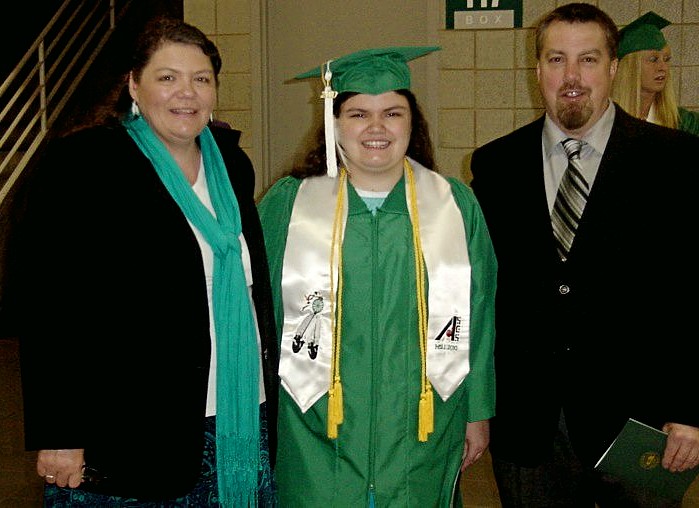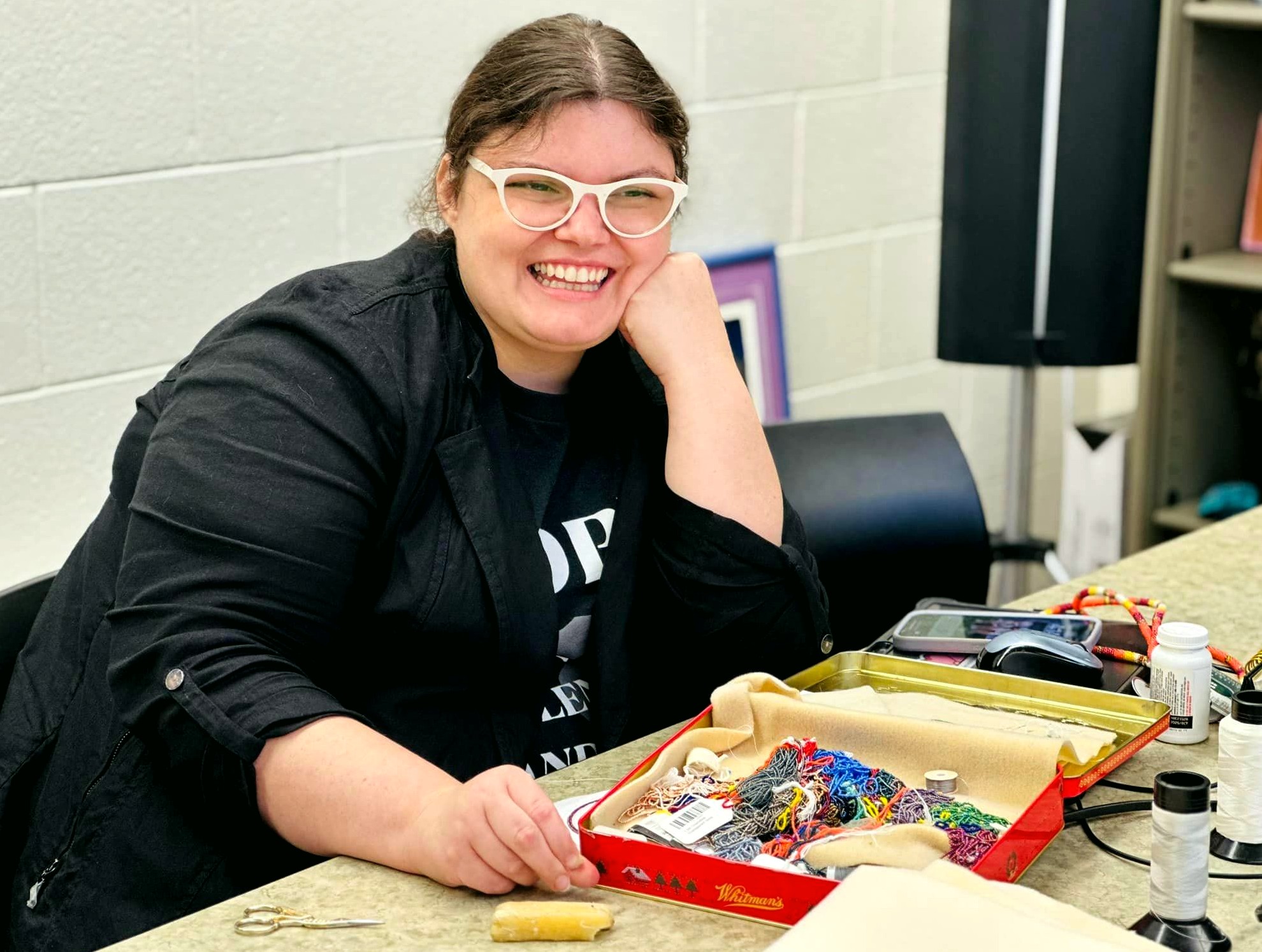
Ellie Mitchell is on a mission to preserve Indigenous languages, arts, and crafts to ensure that Native American culture and traditions remain vibrant for future generations.
A member of the Saginaw Chippewa Indian Tribe and a Michigan State University alum with a B.A. in Linguistics, Mitchell is using her MSU education to support tribal language programs across the country as the Indigenous Community Outreach Liaison for MSU’s Center for Language Teaching Advancement. In addition to this work, Mitchell also is the founder and owner of Bead & Powwow Supply, which promotes Indigenous arts, crafts, and fashion.
Growing up on the Isabella Indian Reservation in Mount Pleasant, Michigan, where the Saginaw Chippewa Indian Tribe is headquartered, Mitchell was part of the first generation to attend a tribal-run school, the Saginaw Chippewa Academy, which is where her desire to preserve Indigenous languages first began. It was at the Saginaw Chippewa Academy that she first learned Anishinaabemowin, the language of the Anishinaabe nation that is now in danger of becoming extinct if not passed on to new generations.
“As a child, I heard so much about the importance of our language, so I wanted to learn it,” Mitchell said.
When she was in eighth grade, her Anishinaabemowin teacher left the school to join the faculty at Michigan State University. It was then, Mitchell said, that she decided she wanted to go to MSU so she could take her teacher’s Anishinaabemowin class. So, she worked hard, kept her grades up, and got into MSU when she graduated from high school four years later. She chose to major in Linguistics with a specialization in American Indian Studies.
“Linguistics let me study more language,” she said. “I took an intro class and was fascinated by it.”
While at MSU, Mitchell was awarded a Morris K. Udall Scholarship in recognition of her work on tribal policy related to Anishinaabemowin revitalization. She graduated from MSU in 2010 and later went on to earn an M.A. in Humanities from Central Michigan University with a focus on Native American Studies.
Language preservation work
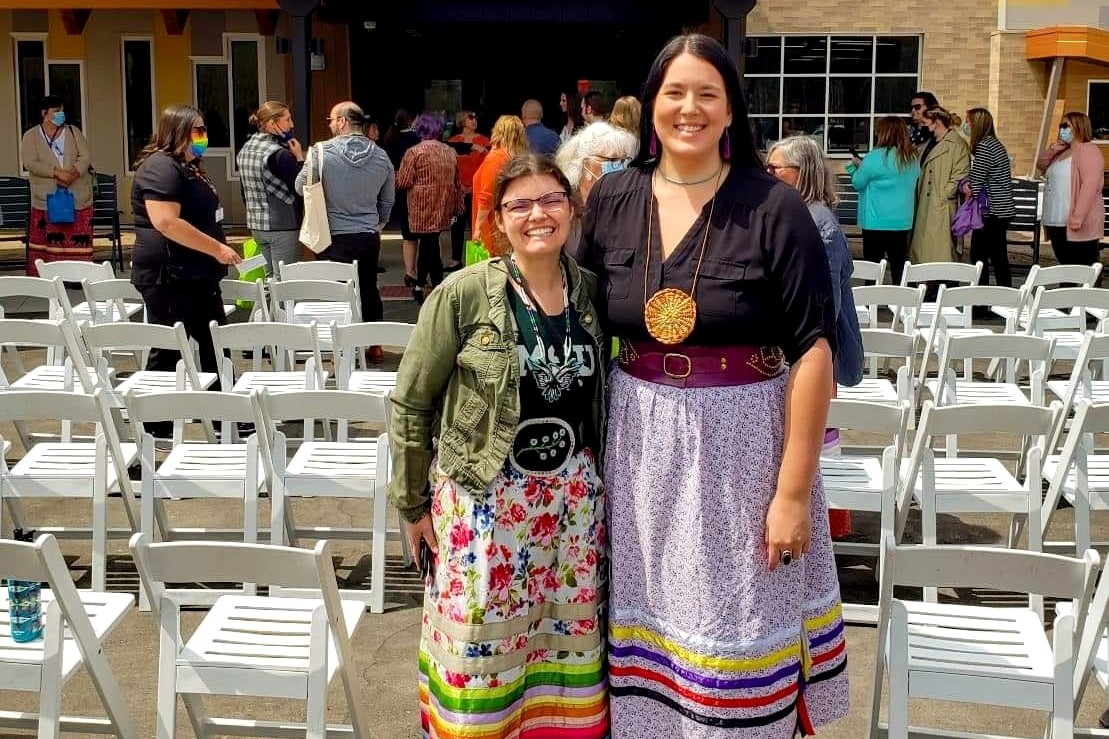
Mitchell returned to Michigan State University in 2020 to support the Less Commonly Taught and Indigenous Languages Partnership, funded by the Andrew W. Mellon Foundation, as the Indigenous Community Outreach Liaison for CeLTA. Her work includes assisting tribal communities with language revitalization efforts and serving as a key contact within the vast MSU system.
“A lot of my work is to help tribal communities with the grant application process and with brainstorming ideas that could potentially be funded,” she said. “MSU is so huge, and sometimes finding the person you need to ask to get a question answered is difficult. So, it’s helpful for communities to have me as a contact point.”
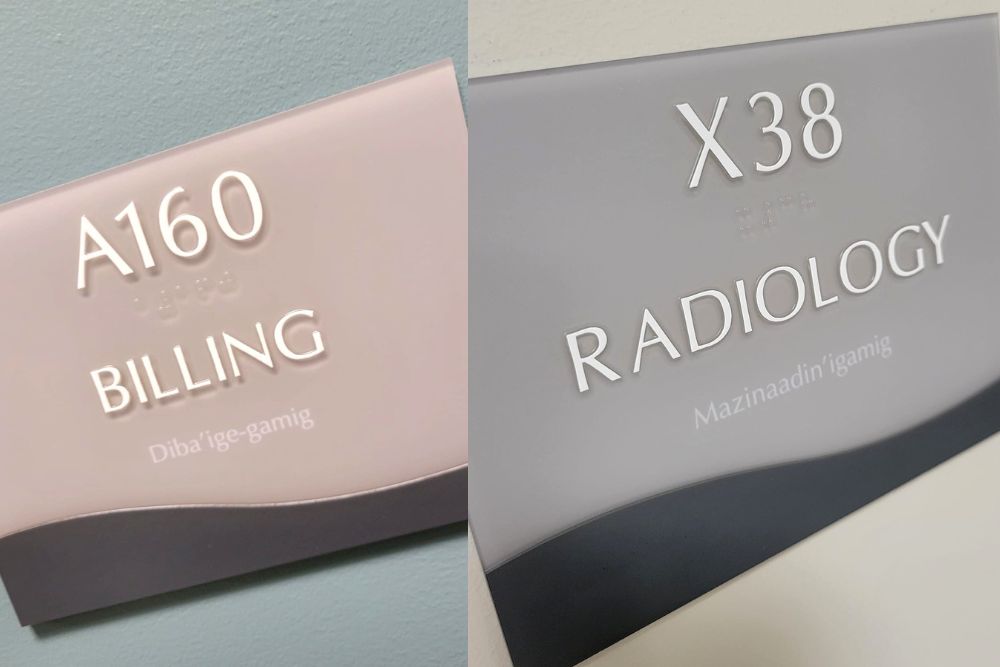
In her role at MSU, Mitchell also works to pull together a centralized list of resources, making it easier for communities to find the materials they need to teach and preserve their language, which is essential for many Anishinaabemowin speakers who are scattered across North America.
One of Mitchell’s proudest accomplishments is the work she has done to translate signs for tribal health centers and schools into Anishinaabemowin.
“I helped a tribe in Michigan as it opened a new health center to translate all the placards outside the rooms, so they’re in English and Anishinaabemowin,” she said. “My tribe is opening a new school, and I helped translate the signs for that as well.”
Bead & Powwow supply business
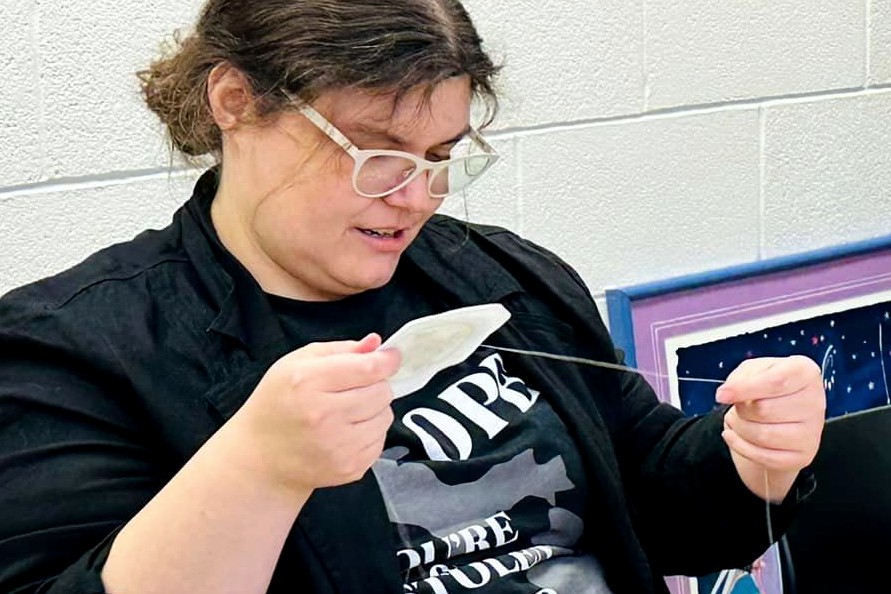
While Mitchell’s work at MSU focuses on language preservation, her entrepreneurial journey is dedicated to keeping Indigenous arts, crafts, and regalia-making alive. Inspired by her mother, who made regalia for powwows and sold Indigenous crafts to supplement their family’s income, Mitchell founded Bead & Powwow Supply in 2011 to fill a void that she became aware of as an Indigenous artist herself.
“I couldn’t find the supplies I needed to make my artwork. It’s specialized, and there weren’t a lot of places online,” Mitchell said. “You might have to drive to South Dakota or Montana, and even then you may not find what you need.”
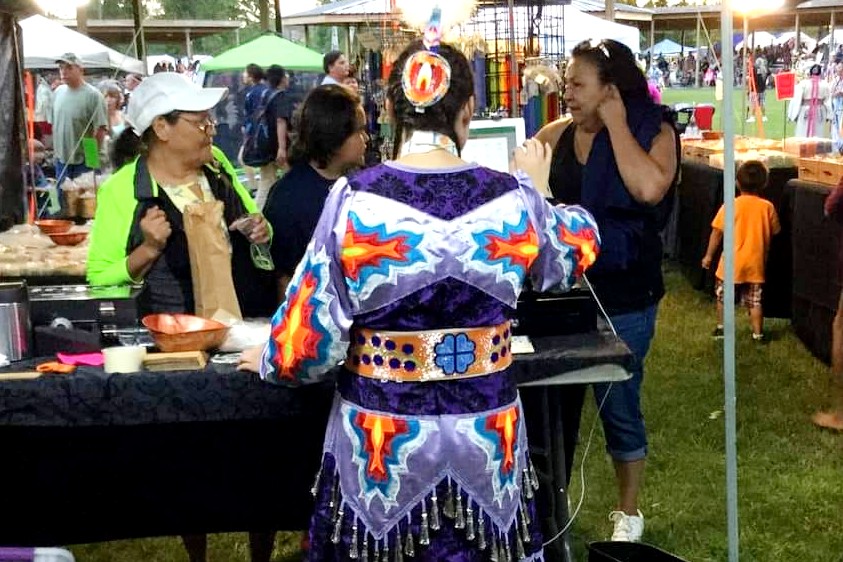
Recognizing this widespread problem among Indigenous crafters, Mitchell wrote a business plan and launched Bead & Powwow Supply to make hard-to-find beads and other materials more accessible to Native crafters and cultural education programs.
Initially, she sold craft supplies and beadwork at powwows before opening an e-commerce shop. In 2023, as her online sales outpaced in-person sales, she opened a brick-and-mortar store in Grand Rapids, Michigan, where she sells a wide variety of crafting supplies, from beads and ribbons to apparel from Indigenous-owned brands. She recently expanded her product line to include fiber art supplies and fabrics to meet the needs of a broader customer base, from beadwork artisans to quilters.
Mitchell is proud to create a space where both experienced artists and newcomers can find the materials they need to continue their work. She hopes to open a second store in Michigan’s Upper Peninsula and expand her educational offerings by hiring an education coordinator to teach classes on beading and other traditional crafts.
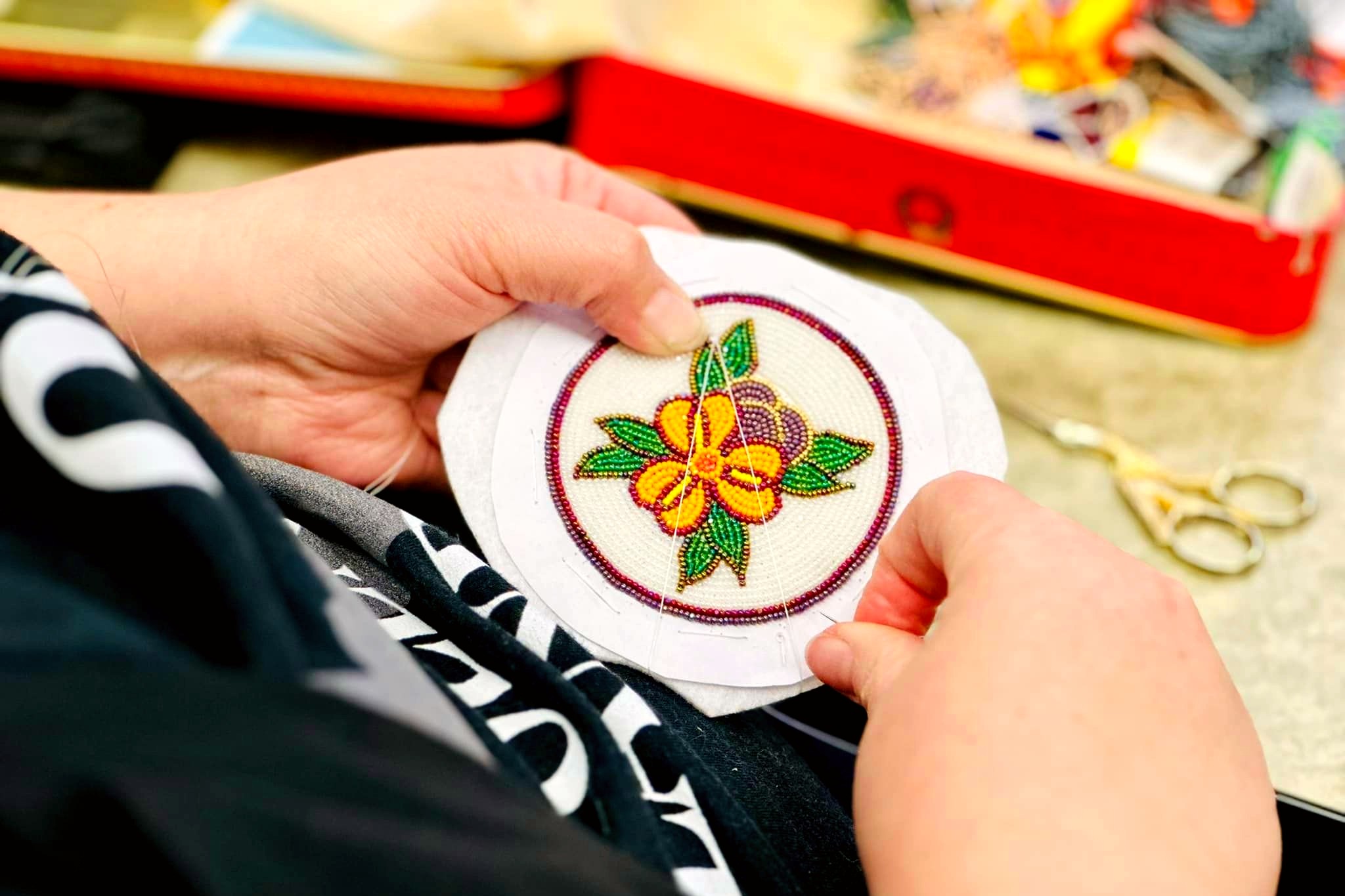
As she continues to influence and support her community through her shop and outreach work, Mitchell’s passion for crafting remains as strong as ever.
“I still get so excited with every shipment of beads,” she said. “I’ve been doing this for 13 years, and you’d think I’d have developed immunity to getting distracted by my own products, but no!”
As part of this year’s Native American Heritage Month events at MSU, Mitchell and Blaire Morseau, Assistant Professor in MSU’s Department of Religious Studies and an 1855 Professor, recently led a beading workshop that was open to everyone. Mitchell said she would like to hold more beading workshops in the future.
Advice for aspiring entrepreneurs
As a successful business owner and community leader, Mitchell encourages young entrepreneurs to follow their passions, even if their interests seem unconventional or unrelated to traditional business paths. She believes that the skills and knowledge developed through personal interests and other fields of study can be surprisingly valuable in running a business.
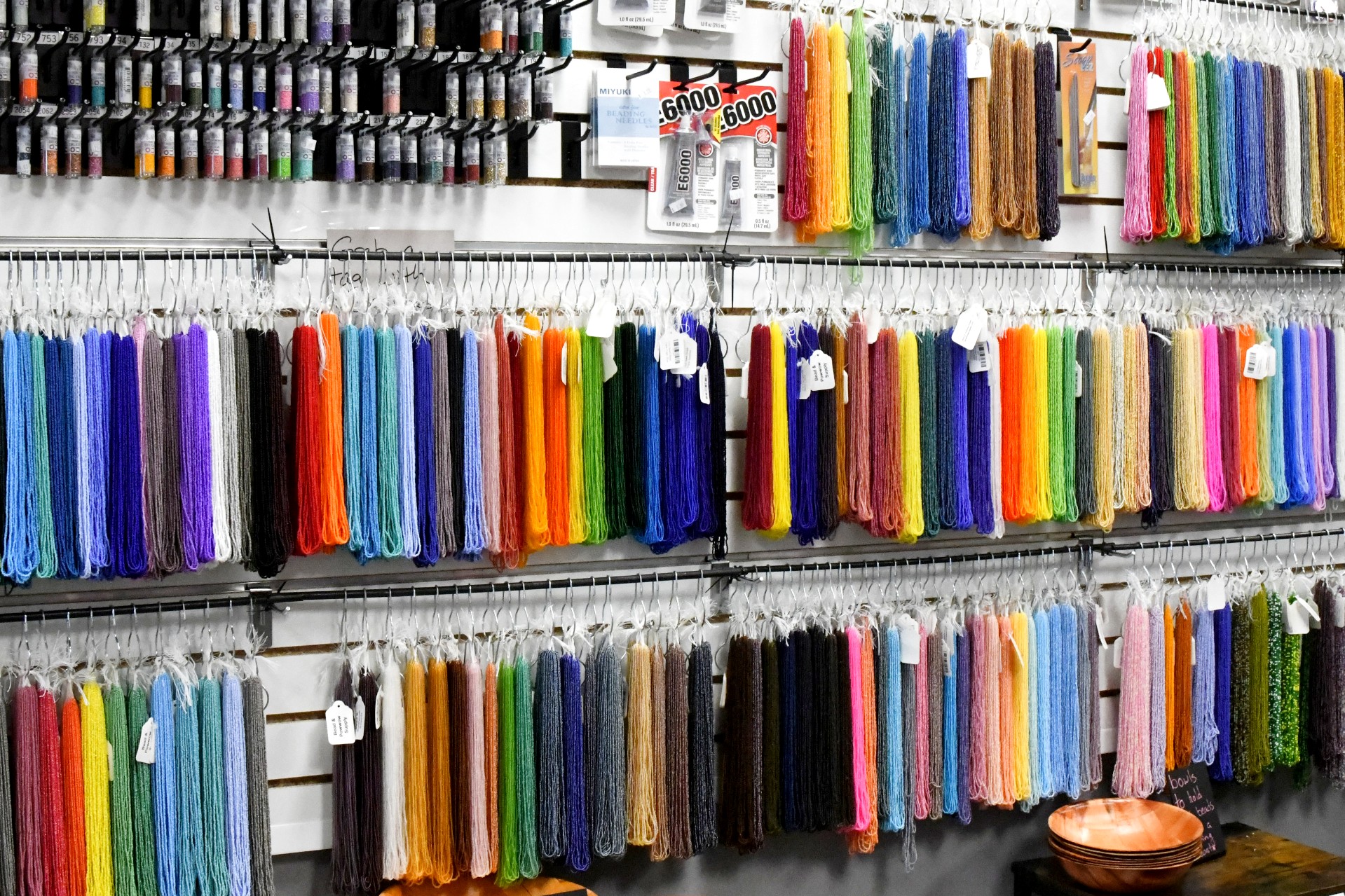
“I’m really glad that I stuck with linguistics and something I was interested in,” she said. “Linguistics helped my communication skills, which really helps with marketing and dealing with customers and suppliers. I also did research projects as an undergrad and had to learn how to analyze data, which is helpful now. I know how to write a survey and write the questions to get the info I want.”
Her key message to aspiring business owners is to trust in their abilities, keep an open mind, and be willing to adapt.
“You can make a business out of just about anything,” she said. “Stick with what you’re passionate about and be open to learning along the way.”
This story originally appeared on the College of Arts and Letters website.
